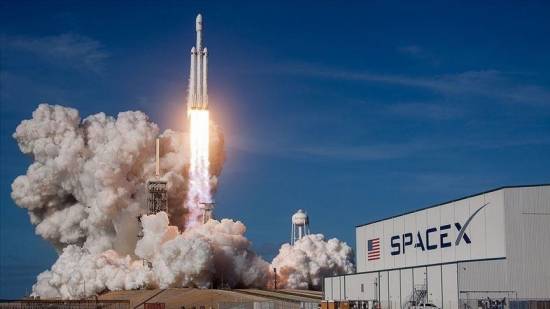SpaceX launches rocket to resupply International Space Station
SpaceX launched its Falcon 9 rocket into orbit Thursday night for an important mission on its 25th flight, known as CRS-25.
The rocket blasted off from NASA's Kennedy Space Center in Florida at 8.44 p.m. EDT (0044GMT) with a robotic Dragon resupply craft that will replenish the needs of the International Space Station (ISS).
CRS-25 will deliver more than 5,800 pounds (2,630 kilograms) of science equipment and daily living supplies to the ISS, which will support more than three dozen ongoing research investigations.
The ISS crew will also be receiving a much-welcomed fresh food delivery.
"We're sending up apples, oranges, cherry tomatoes, some onions, baby carrots, garlic, tahini, cheese and dry sausage," said ISS deputy program manager Dana Weigel. "So a really nice mix of fresh fruit for the crew."
The Dragon will spend the next 36 hours catching up to the ISS in orbit. The cargo capsule is scheduled to dock with the space station around 11.20 am EDT (1520GMT) on July 16.
One of the mission's key experiments is the Earth Surface Mineral Dust Source Investigation (EMIT). According to NASA, the device will be used to measure the mineral composition of dust in the planet's driest regions.
EMIT will focus on how the dust from some of Earth's arid landscapes is carried on winds across the planet and how it affects the overall climate system in ways scientists do not yet fully understand.
Measuring the minerals in these samples will help researchers get a better grasp of their composition and role in global climate, such as weather pattern predictions, improved crop yields and other climate research.
NASA currently has access to about 5,000 such measurements, a drop in the bucket of what is to come in the near future.
"They are looking to increase our current measurement set…to somewhere close to 1 billion measurements," said NASA associate ISS scientist Heidi Parris.
EMIT “really has the potential to close the gap in our understanding of Earth climate models."
The CRS-25 mission is expected to last 33 days./aa


